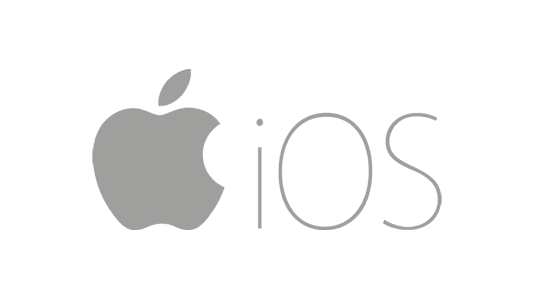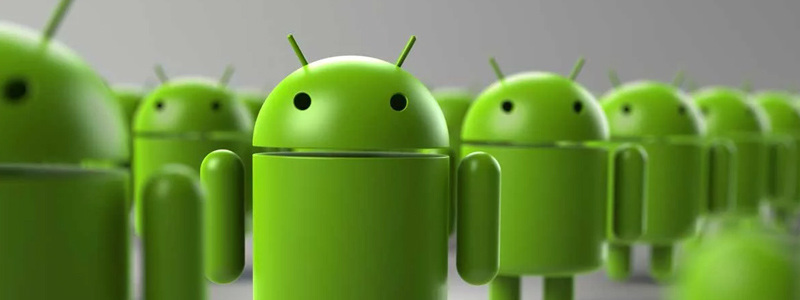And age-old question when it comes to choosing mobile operating system.
Usually when you're going to buy a new phone, it's recommended to use the same platform that you currently use. This is because switching operating system requires you to learn a few more things and potentially lose access to previously purchased apps, losing specific app-related data and others.
But if you really want to switch operating system, there is are whole new differences. To some, it may be a burden, but to others, it can be a fun experience.
The two major mobile operating systems control the global mobile internet, experienced popularity, and matured with time. The two have their own advantages that can't be found on the other, and each has its own quirks to play with.
Below is how the two can be described:
Apple's iOS, The No Gimmick

Apple's iOS has been around since June 29, 2007. The mobile operating system that comes shipped with iPhone, iPad, and iPod Touch, is the best choice for those people who want a device that just works.
The mobile operating system isn't as flexible as Google's Android, in ways that users are restricted from customizing the look and feel of the interface. Apple made iOS to work just like how it wants it to be, and because of that, Android users that consider switching should live with that fact.
One huge advantage of iOS is that it gets frequent updates. Patches and major version upgrades come yearly, and can be installed on any iPhone, iPad, and iPod Touch that supports the new version. Apple generally supports new iPhones and iPads with iOS updates for five to six years after their release date, and all of those devices get the same updates at the same time.
While new major versions may not support every Apple devices, but still those older devices get the most functional improvements and all of the security updates. Apple continues doing this as long as the hardware on those devices last.
In comparison, only Google's phones are guaranteed immediate updates. And even then, Google only supports them for a few years after the device's release date.
What this means, the biggest advantage of iOS if compared to Android, is in the longer term usage. Because Apple supports iOS devices for a relatively longer period of time, you can hand your iPhone to others without having to worry about security risks, as much as if you own an Android device. The resale value of iOS devices are also higher than Android.
Android: There Are Choices For Every Needs

Do you want a highend smartphone which competes directly against iPhones? Android has it all. At some criteria, highend Android phones can surpass even iPhones at their own game. If you want a budget phone that works, Android has it too, and it costs fraction of the price of the cheapest iPhones.
While Android phones come with many shapes and sizes, the phones are famous to lack consistent software and security updates. This is because Android comes with many flavors that are customized by the vendors and also by the carrier.
But still, Android has a lot to give. And that is through customization far superior than iOS, even after jailbreaking it.
For this reason, the mobile operating system can be made to support a lot of things. Google have adapted the operating system to allow vendors and users to customize it in many ways possible. Android can be made to keep the headphone jack (iPhones have ditched it), having fingerprint sensor, iris scanner, multiple cameras, styluses, external memory for extended storage, bigger screens, more customization to preserve battery life, installing physical keyboard and a lot lot more.
Android, first introduced in September 23, 2008, has a lot of varieties that made it more versatile and a lot more colorful. There are widgets, the ability to add launchers, choosing the default apps for certain tasks, and others.
These are the biggest advantage of owning an Android phone.
Further reading: Too Many Android Phones On The Market? Here Are The Reasons
Which Is Best?
Quick answer: none. Longer answer: depends on your needs.
Using iOS, you'll have similar experience across all iPhones. It's easy to use, straightforward without gimmick. It works like it should, and has quite a longer life due to the fact that Apple supports its devices better than Google. If you prefer your phone to work without you having a headache in customizing and securing things, iOS is for you.
But if you want a phone with more option, Android is certainly the answer. The operating system allows customization far beyond iOS. And if rooted, the possibility of customization is almost limitless.
Consider Switching?
There can be temptation to switch to other operating system, even if you don't want to. In every major updates of each operating system, both Apple and Google introduce a bunch of new features that can be alluring. But it's not recommended to switch mobile operating system, especially if you've used it for a long time.
As previously explained, after years of usage, you certainly have spent a lot time in learning the quirks and features. You have become accustomed in doing everything on your phone that you can do what you want to do, fast and easy, all without thinking.
From opening your favorite email app, to then switching to social media app, and then the news aggregator app. Found something interesting you want to share, after that? You can do all that in mere seconds. Switching mobile operating system requires you to unlearn what you knew, to learn what you need to know.
iOS is tied to iCloud, and Android to Google's array of app ecosystem. Switching requires you to export data from one to another, and in most cases, it's not an easy task, even if it is possible.